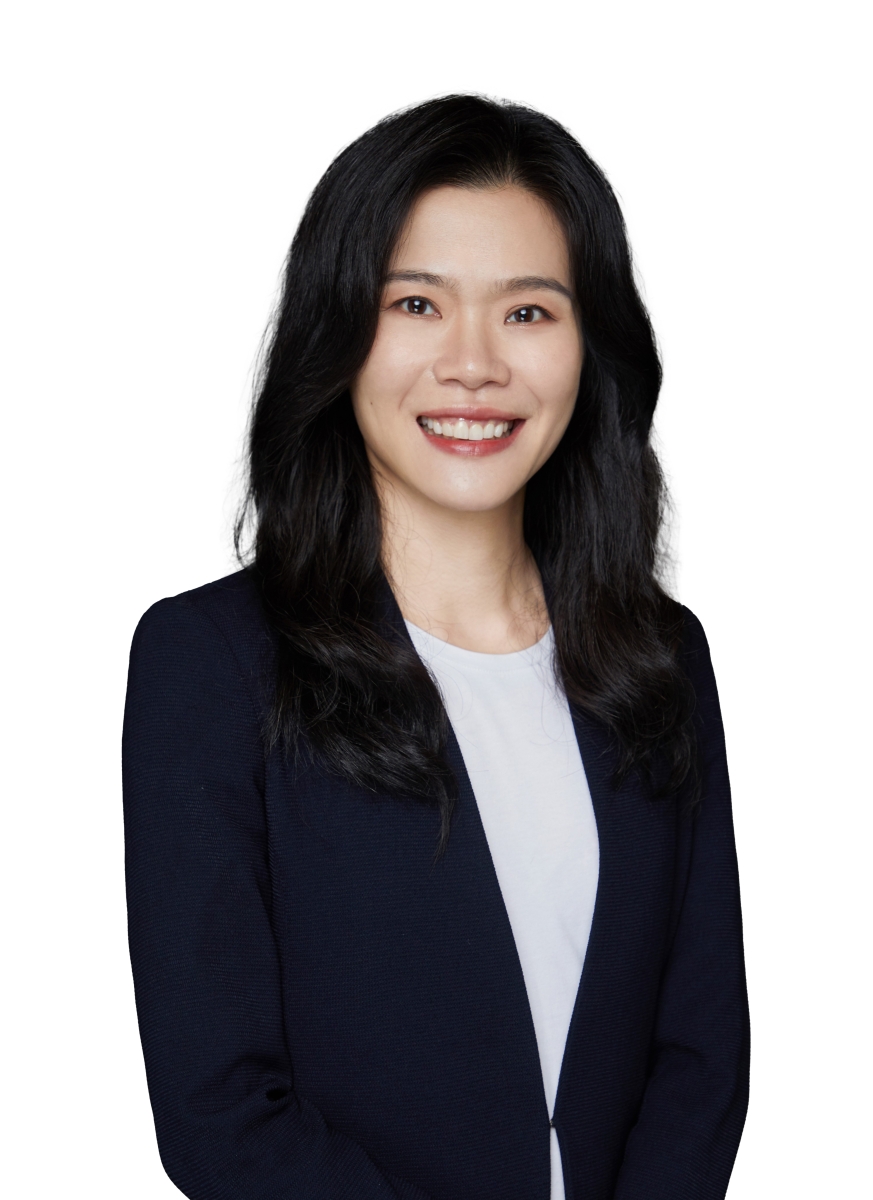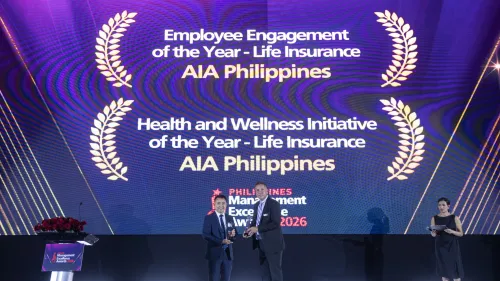
How women in power are the key to business success
Industry experts share their thoughts on how women in business can be the ultimate growth driver.
Women’s representation in C-suite roles grew to over a quarter in the past five years — a leap in progress which lands on muddy ground. However, with lagging progress in the middle of the pipeline —and persistent underrepresentation of women of colour — true parity remains painfully out of reach.
“One piece of good news that we found in our most recent report is that, if you compare 2023 versus 2018, C-suite women leaders have increased to 28% from 23%. So, that’s 5% within five years. I mean, there’s still room for improvement, but I find it quite telling that people are making that diversity a top agenda item,” Violet Chung, partner at McKinsey & Co., told Insurance Asia magazine.
“And I want to caveat, which is important, we’re not just saying that we want more women. What’s important is that it makes a business case,” Chung added.
Referring to McKinsey’s Women in the Workplace report, conducted in partnership with LeanIn.Org, the study magnified the importance of diversity, equity and inclusion (DEI) in overall business success. “Most companies have increased or maintained their financial and staffing investments in diversity, equity and inclusion over the past year. And nearly three in four say DEI is critical to their future success,” the McKinsey report stated.
From the insurer’s perspective, Zurich Malaysia Chief Financial Officer Yuen Leng emphasised the growth potential of businesses if holistic initiatives and programmes were implemented to have greater representation and diversity in the workplace.
“At Zurich, we embrace diversity, equity inclusion and belonging (DEIB), and we have a flagship programme, which we call FLAG: Female Leadership Advocacy Group,” told the magazine in a separate interview.
“The programme brings together C-suite females from across the Asia Pacific region to support us and advise us on the different gender and leadership topics, particularly identifying interventions that can close the gender gap at the more senior levels of the organisation.”
To understand deeply what could be done to bolster DEI in the workplace, Insurance Asia spoke exclusively with McKinsey’s Chung and Zurich Malaysia’s Leng, who both shared their perspectives and call-to-action lists amidst the male-dominated business environment.
What notable achievements/insights would you like to share with us about your experience in a male-dominated industry?

Chung: I’ve been in the consulting industry, serving financial institutions, for about 14 years now. Both consulting firms and insurance companies have traditionally been male-dominated. But I’m fortunate to be in a firm like McKinsey, where about 10 years ago, we started focusing on diversity, especially with women. I’ve seen first-hand that the focus of the organisation from the top down is quite critical.
From an associate to senior partner, I had a lot of mentors, both men and women, who looked after my career progression over the years. That’s important. I think it shouldn't just be women for women. Too many organisations are thinking, ‘Okay, you’re a woman. So, you should take care of your female colleagues only.’ That’s not how it works. For me, it was very fortunate that I had a pretty wide and great mix of both males and females from all levels, taking care of me over the years.
One action in particular that helped me at McKinsey and could help insurers and all companies is tracking metrics. I was a recruiting manager for McKinsey’s Greater China office, and one thing we did well as an organisation was tracking the inflows of the diversity of recruits at all levels and tracking the male-to-female ratio across all levels. Having those metrics is very important.

Leng: I first started as an actuary in London. I moved back to Asia about 12 years ago and I was mostly in consulting before that. Now I’m with Zurich and I’m incredibly proud that I’m in an organisation that supports me professionally and allows me to play my part as a mom. I have three kids, the youngest is almost 18 months old now and it's not always easy to juggle these responsibilities, but I'm very grateful for the support systems I have at work as well as at home, which allow me to do so.
The interesting thing is, I never really felt the gender gap was very significant when I was in more junior roles when I was just entering the workforce. I was just focused on work and didn’t exactly notice that, but I have noticed the industry is more male-dominated as I've progressed through my career.
From the experiences I have, there are three things I feel are important to take note of. The first one is that women should take charge of their careers. Actively seek out different experiences, get new skills, and when there are opportunities, put your hands up because the opportunities are always there for people who want to progress. The second thing is always to support someone else – support other women, advocate for diversity and spread the kind of energy that makes everyone feel more positive about their work. The last thing is to find an environment that supports your ambition. There are different environments everywhere, and finding one that fits you and will work with your circumstances to support you, is important in helping you progress through your career.
Despite progress, women remain underrepresented in senior leadership positions across various industries, including insurance. What systemic changes do you believe are necessary to bridge the gender leadership gap in the insurance sector?
Chung: In one of our previous reports, we found that top-quartile performers have a higher mix of women leaders in senior roles. One has to have that conviction; diversity improves performance. Because, again, it cannot be just a slogan or something that we see without a trackable impact.
The third thing is embedding change agents and incentives for change. What that means is twofold. One is having top-down role modelling--having managers be the change agents and putting an end to microaggression and biases. Being a minority and being a woman, I often hear things that I kind of roll my eyes at, but let it go on. It’s sort of a subconscious behaviour. So, step one is being aware, and step two is becoming the change.
If anything, COVID-19 in the last few years has shifted the workplace into a flexible working model. I think many organisations have implemented it, some have found some success and some have not. But having flexible working hours, especially in the context of the social expectation of women, is quite helpful. Being a woman sometimes means you’re a mom, a caretaker, or someone who has more responsibility than your male counterpart. But the question is, “How do we make the flexible working model successful?”
Leng: For me, if we want to see any change, the first step is always about awareness — having that awareness is always very important. There is already a growing recognition of the importance of diversity; that a diverse team with a more balanced kind of male-female ratio in leadership roles will produce better outcomes and performance for the business.
There are a couple of core initiatives of the FLAG programme that are worth mentioning. At Zurich, we are very committed to having balanced workforce targets. This means that in the market where we operate across the region, we’re looking to have a more balanced workforce, with more equitable representation across demographics and all levels of the organisation over the next few years. There’s also a very specific female acceleration programme, which is a very structured programme with mentorship opportunities (either getting a mentor or mentoring someone), training, leadership, and development that are aimed at supporting women in their careers. Alongside that, there are a lot of different conversations, and monthly platforms to allow the leaders and members to connect and discuss different topics on empowerment.
Are there any innovative approaches or technologies that you believe hold promise for creating more inclusive workplaces and levelling the playing field for women leaders?
Chung: As I mentioned before, COVID has made a lot of organisations more comfortable working with alternative models – remote and hybrid models. The question is how do we make a flexible model work?
Thus, having a bit of infrastructure for, not just women, but I think parents in general and those with elders that need to take care of, to have resources to tap into. Benefits like this are important. One thing to note from our 2023 report is that firms that perform well have women leaders or diversity in general.
Leng: I think that’s a very interesting topic, because post-COVID, the flexibility presented by virtual collaboration tools has created a more level playing field for individuals, including women to work remotely. These tools allow you to use your time more effectively, to balance family commitments with work as well as provide better accessibility to career opportunities. The different platforms and channels, for the different virtual communications, really allow you to have better opportunities. Having training made available online — things like fireside chat sessions and town hall talks — won’t just be limited to programmes that you run in your own business or your organisation. Materials are becoming more accessible, internationally and across industries, that focus on diversity and inclusion, which will promote more inclusive workplace cultures. The availability of technology will amplify as well as accelerate the impact of this change that we are advocating for.
Lastly, what advice would you like to give fellow women (or to the men) in this industry?
Chung: I encourage fellow women to be bolder and more ambitious in what we can achieve. The sky’s the limit, right? And then we’ll figure out how later on.
My second piece of advice is that we shouldn’t be shy about asking for help and asking for a network and support. The key to success in any sort of senior role is having a great network of sponsors and supporters. Again, be bolder in asking for things and asking for support.
My advice to the men is that your efforts are noticeable. The other half of the population needs to take some action — even daily actions — to show that you’re supporting women. So ask yourself: “What can you do to support more women, regardless of their rank or status?” “How do we become a practitioner of ensuring that microaggressions don’t happen daily?”
Leng: I think for women, really embrace your ambition. So don’t shy away from ambition and your aspirations. Be visible, look out for that opportunity, and put your hand up. I think as women, we can also pursue leadership roles and challenging opportunities with confidence.
And for people who have more experience take the time to coach and mentor others to help them to succeed. And for men, the active allies, take proactive steps and be champions for women. Supporting gender diversity, as well as equality is not just a women’s issue, it’s a collective issue. Taking the time to listen, understand and learn from different experiences will help in the push for more inclusive policies as well as practices in the workplace moving forward. It’s definitely not an agenda for women only, it’s a collective agenda.



















 Advertise
Advertise









